- Learning time
- 60 minutes
- First play time
- 180 minutes
Banish the Snakes
Designed by: Jerry Shiles,Kevin McPartland
Banish the Snakes is a co-operative (or solo) game where the players strive to convert the pagan population of fifth-century Ireland to Christianity. The battle is both ideological and occasionally literal, as druids and chieftains fight against the ‘saints’ the players represent.
There’s a fair bit of set-up involving placing blocks out on the provinces of the map: green blocks are common people, blue are leaders and red are druids and they must be placed pagan-side up to begin with. Each player chooses a saint they’ll represent – giving them a player-specific power or ability – and takes a small player board. The board tracks your zeal – essentially, your health – and the amount of actions you spend each round. Most saints have four, and you can spend them in various ways: moving across borders on the board to adjacent areas, gifting cards to your fellow players, building churches, and most importantly, converting the population: that’s the nub of the game, of course, and there’s inherent risk in a conversion attempt as we will soon discover. But there are also ways to mitigate that risk…
However, before any actions are taken by any player, there is always an Event card drawn and resolved. Most event cards have several possible events, and which one activates is decided by an arrow on the previously-drawn event card – there’s a kind of circular card-placement system on the board that makes this easy to follow. The critical thing is that some events will be helpful, or at least not harmful; and some will be bad. Events may cause your saints to lose zeal, lose converted population back to paganism and so on. So turn by turn the game is throwing up surprises that the players must adapt and overcome, and they do so taking actions.
The key action is conversion, which is attempted by a single die-roll. Each block has a negative value between -1 and -6, and might be influenced by other blocks in the same area: the population are influenced by chieftains; chieftains are influenced by kings. So if you’re trying to convert some of the population you factor in not only that specific block’s negative value, but also any other block that has influence over it: EG a people block of -2 and a chieftain block of -3 gives you a sum total of -5. That’s a tricky score to convert as by default you’d need to roll a six to successfully convert them. But players can steer odds their way in a couple of different ways. Building churches gives you a +1, +2 or +3 depending on the level of the church. Evangelising is also an action, which you take in preparation for a conversion action: each evangelism action gives you +1 on a conversion attempt. Spend three actions evangelising and suddenly that roll of 6 you needed can be 4, 5 or 6 instead: significantly better odds. If your conversion attempt is successful, you flip the block over to its Christian side. If you fail, however, you lose zeal, and that isn’t good…
Chieftains and kings can work in your favour too: once converted, their previous negative influence becomes a positive one for further conversions in the area.
But as well as the surprises on the event cards, there’s also a ticking clock on the side of the board, which tracks Scotland, Strathclyde and England’s population succumbing to paganism as the Roman empire collapses in on itself: that’s one way the game can end. It can also finish if the event cards run out, the players manage to convert all the people to Christianity, or a player dies twice.
Dying once is okay – not great, but not as terminal as it sounds. If you’ve been lucky enough to draw another Saint from the event deck, you can keep playing as this new saint. If not, your board flips and you are no longer a saint, but an acolyte: notice that your zeal is reduced, and you no longer have the bespoke special abilities of a saint.
Converting the entire population – ignoring druids and leaders – represents a fantastic victory. Otherwise Banish the Snakes has a scoring system that judges your attempts based on how many blocks you have managed to collectively flip to their christian side, with the results ranging from total defeat to full victory.
The guru's verdict
-
Take That!
Take That!
None from the players, but the game itself can be a tricky customer.
-
Fidget Factor!
Fidget Factor!
Low - assuming you're playing in the spirit of co-operation, everyone should be invested in what everyone else is doing. As long as nobody ponders reflectively on the nature of fate for too long, the game proceeds at a reasonable pace as well.
-
Brain Burn!
Brain Burn!
If you want to convert the people, it helps to convert the chieftains. If you want to convert the chieftains, it helps to convert the kings... so the people are your primary goal but the pagan leaders form a hefty distraction, and they tend to be aided by events...
-
Again Again!
Again Again!
The canny way the event cards are triggered means a mere shuffle of the deck changes fate from play to play. Then you've different saints to try playing, the changing board state according to everyone's actions - and of course the rolling of the die!

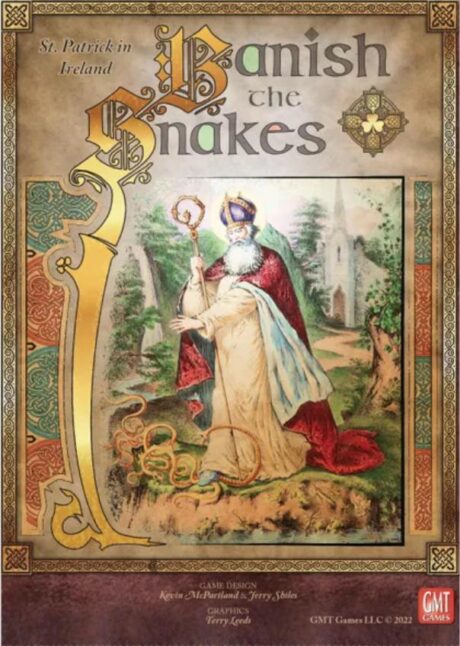


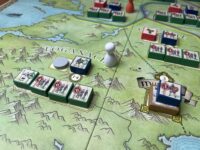
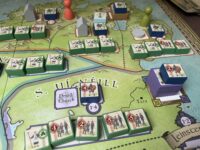


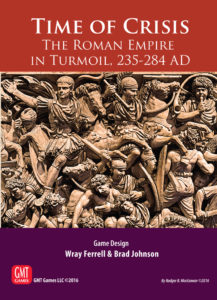

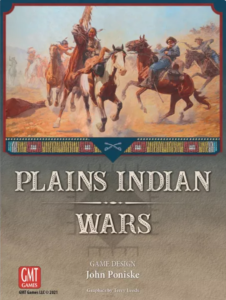


Sam says
The theme won't be for everyone, of course, although I get the sense the designers are neither casting a critical eye nor an evangelistic one, but merely fascinated by the history itself and how 'one man' - St Patrick - and his followers seemingly transformed the theistic leanings of an entire nation. Note we've not explained everything here - there are some additional rules on druid conversion, the dying of saints and so on. However despite the apparent solemnity of the game's story, the actual play is loaded with fortune both good and ill, as almost everything you attempt is leveraged on the throwing of a die and hoping - or praying - for the best. Like Pandemic, the players work co-operatively and although they each have their own saint (and their own final say) discussion and planning can and probably should be part of the experience. As long as nobody tries to run the game on other's behalf, this can make for a fun experience. For players who like control and agency, Banish the Snakes may feel too much of a luck-fest: it certainly places a lot of emphasis on rolling dice, and the events can feel arbitrary and repetitive. But it tells a story, and if strategies can go out of the window, there's a lot of turn-by-turn tactical play - with each conversion attempt a mini-drama in itself.